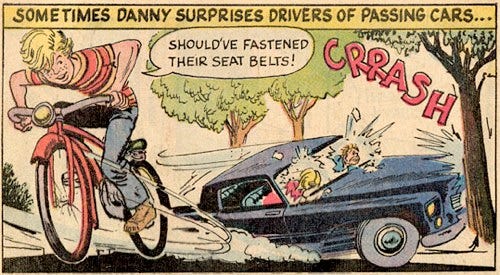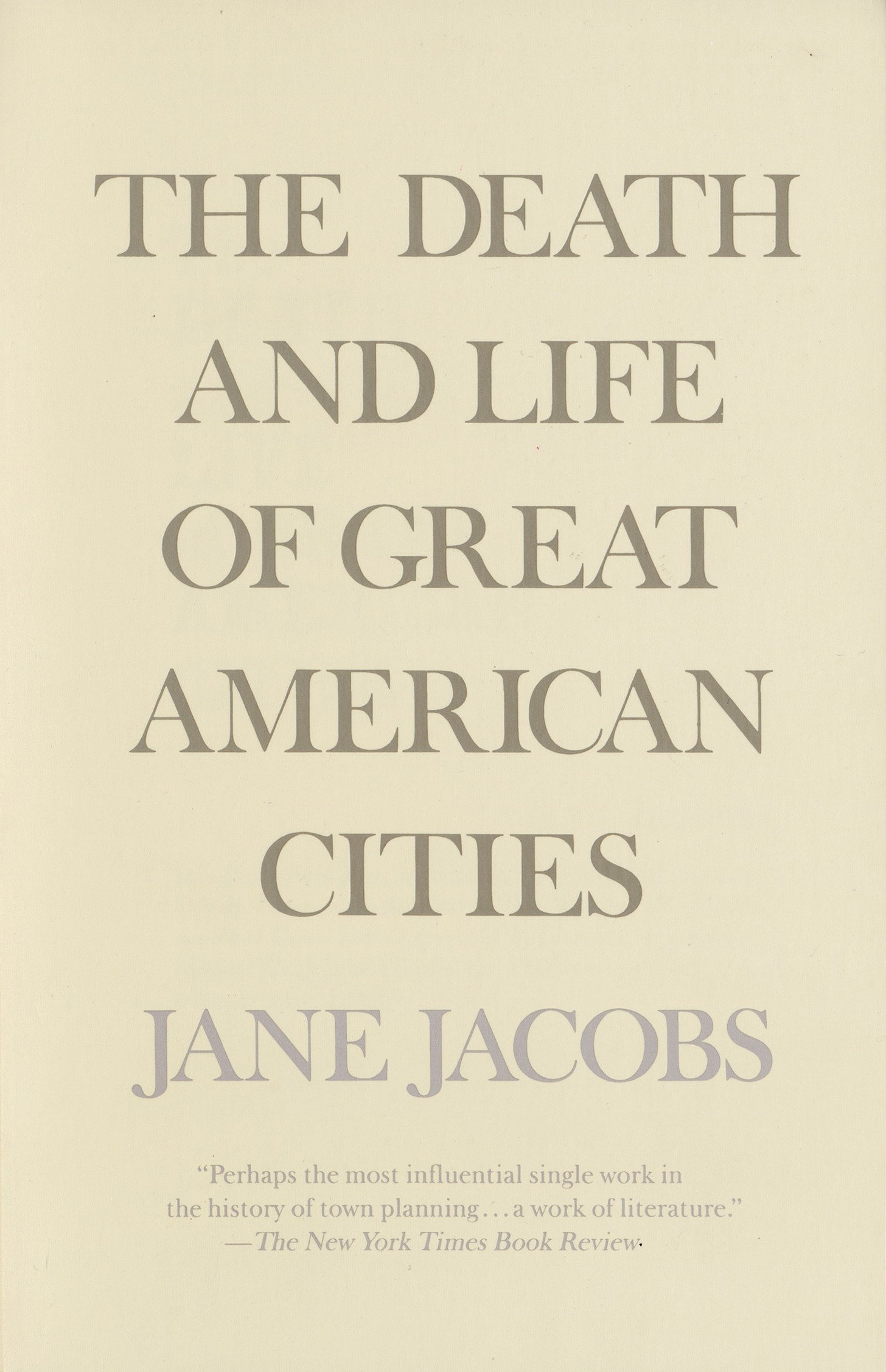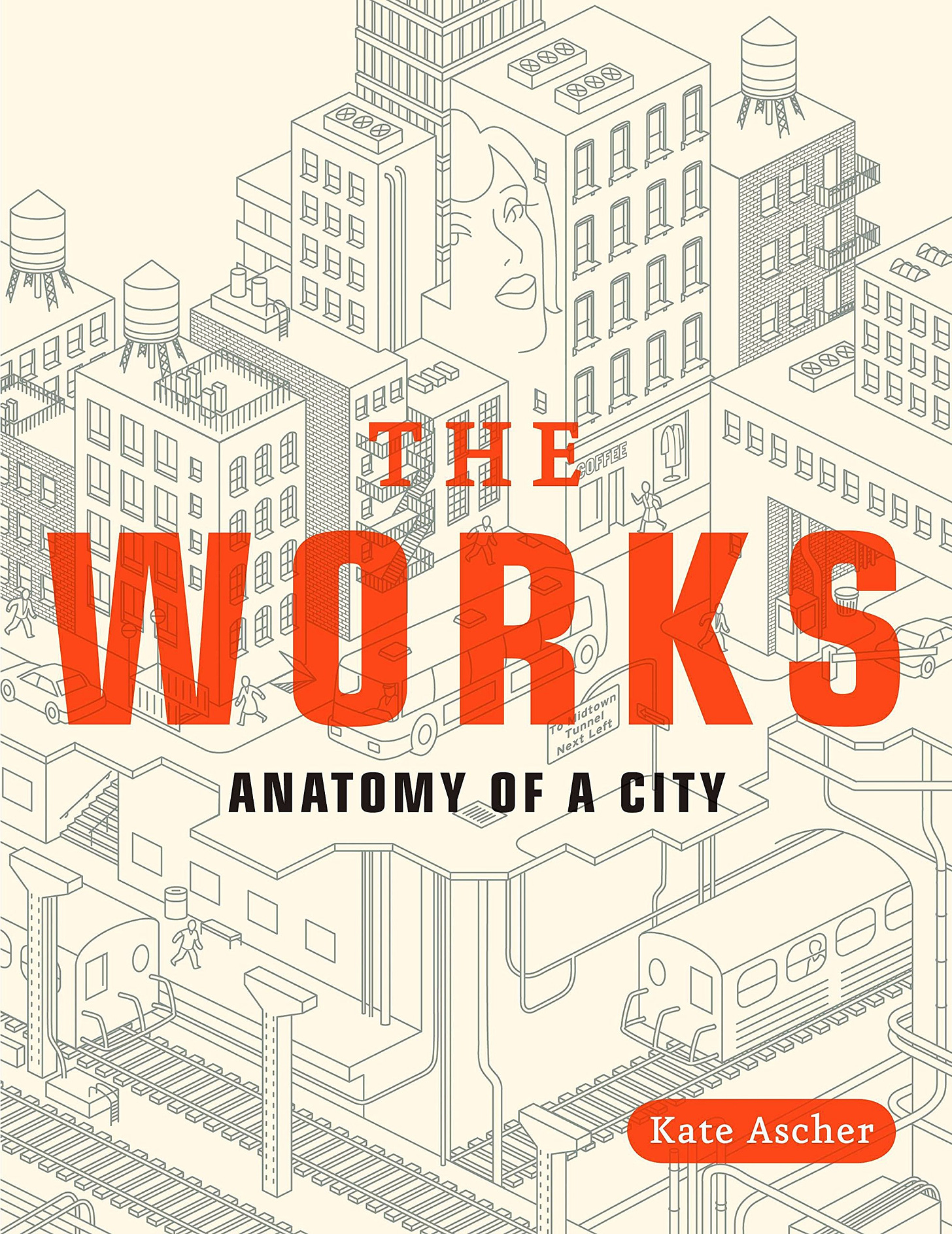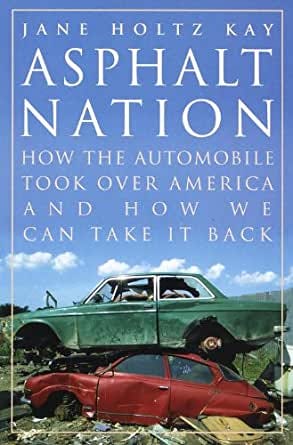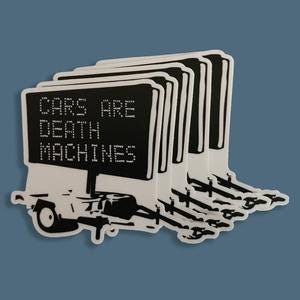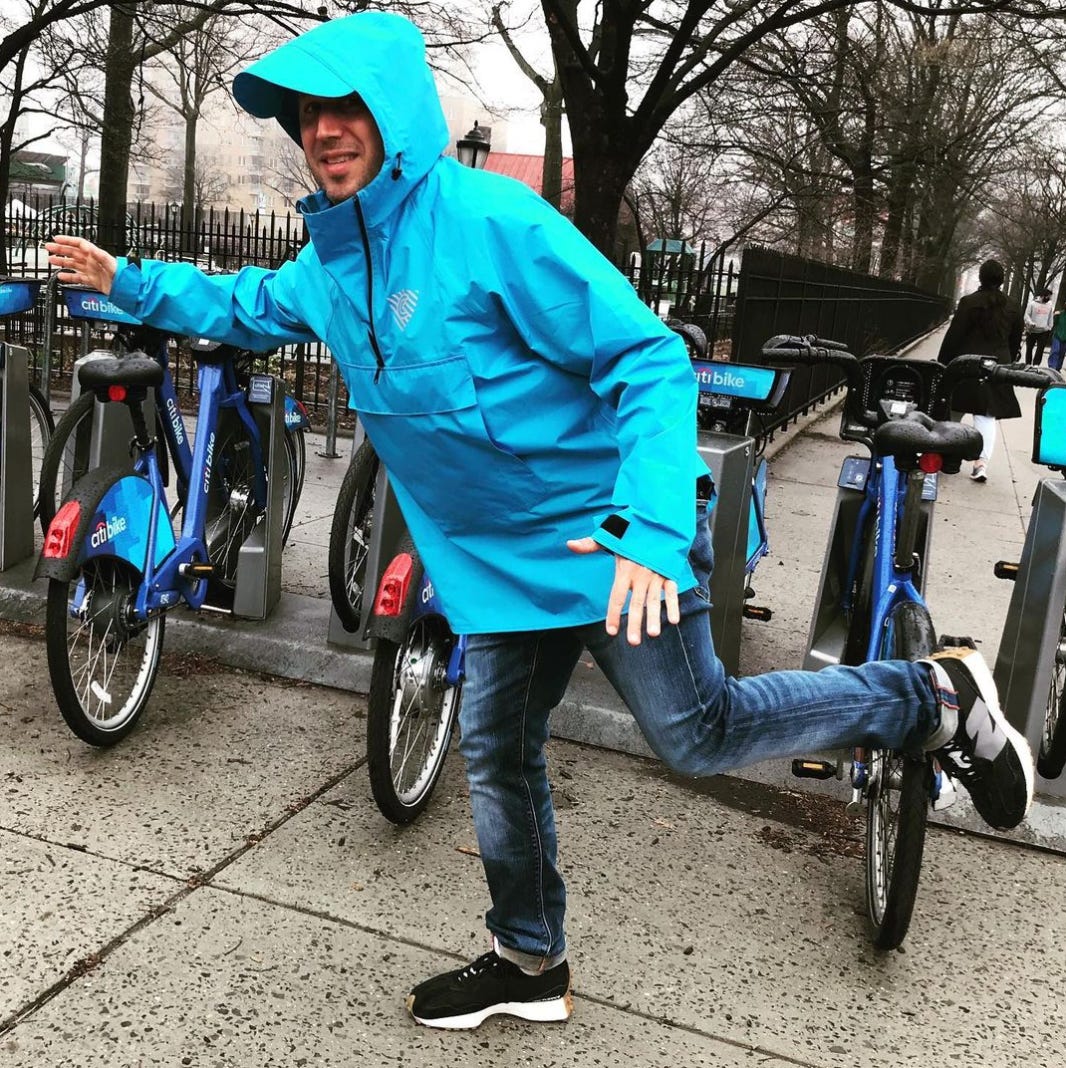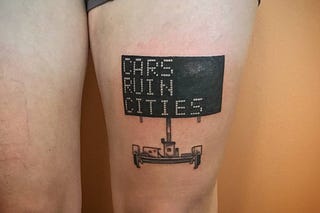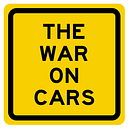

Discover more from The Traffic Report
Beware the Demoncycle
Angie Schmitt, author of Right of Way and a past guest on the podcast, recently took to Twitter to excoriate the Texas Department of Transportation for a victim-blaming public service campaign:
Of course, it’s not “traffic” that can’t be trusted to “follow the rules.” It’s drivers. But as Schmitt notes, poor roadway design and engineering makes breaking the rules all too easy. That’s what needs to be fixed.
Unfortunately, there’s a long history of terrible public service campaigns about traffic safety, including the very invention of the concept of jaywalking itself. Two, specifically targeted at cyclists, recently caught our eye.
First is the 1963 educational film “One Got Fat.” Based on the title alone, you could be forgiven for thinking it’s some sort of Edward-Gorey-inspired narrative about the benefits of bicycling for exercise, produced at a time when people were less aware of the many harms of fat shaming. Instead, it’s about the dangers of breaking rules while biking, with a group of kids demonstrating what not to do as they ride to a park for a picnic. Simple enough, right? Well, for some nightmare-inducing reason the kids are wearing monkey masks. Yes, monkey masks. Each time one of these creepy hybrid monkey-boy cyclists does something wrong, he’s killed or injured in a terribly gruesome way. (Should the punishment for not tuning your bike be death by steamroller? Apparently the filmmakers think the answer is yes.)
There actually is some unrelated fat shaming included in the 14-minute film, but the title, “One Got Fat,” specifically refers to the one kid who follows all the rules and makes it to a park alive… where he eats his dead friends’ lunches. It’s pretty dark.
The other campaign we found was Danny and the Demon Cycle, a comic book about bicycle safety released in 1972 by the Highway Safety Division of Virginia. Because who better to teach kids about bike safety than, um, state highway engineers?
Here’s how Boing Boing described it:
It stars a young sociopath named Danny who enjoys riding his bike in such as way as to cause the death of innocent people. He changes his ways after having a dream involving Satan and a "demoncycle" that takes him on a ride so wild that even Danny can't handle it. After that, he becomes an exemplary lad, following bicycle safety rules to the letter and admonishing anyone who doesn't.
Danny is scared straight, forever committed to riding his bike in such a way that seems downright impractical and totally unenjoyable.
If there is a War on Cars, its hard to compete with this kind of propaganda.
As always, thanks for supporting the podcast and for subscribing to the newsletter.
- Aaron, Sarah and Doug
📰 In the news
In January, former Dallas Mavericks star Shawn Bradley was riding his bike when he was hit by the driver of a car. The crash was tragic, but contrary to many headlines it was not a “bicycle accident.”
In an effort to lessen its environmental impact, Lime will recycle old e-bike batteries into power sources for bluetooth speakers.
Officials in Petaluma, California voted to ban new gas stations as part of a plan to achieve zero emissions by 2030. Drivers don’t need to worry, however. There are still 16 gas stations in the 15-square-mile city.
The Philippines bikes on Dunkin’. Residents of Quezon City can buy a donut at the franchise’s first bike-thru lane.
🎙 Our latest episode
Ep. 61: Jamelle Bouie Has Seen the Future of Transportation
New York Times columnist Jamelle Bouie has been riding an electric-assist bicycle around Charlottesville, Virginia for almost a year now, and he is convinced: E-bikes are the future of transportation. In this one-on-one conversation, Jamelle and Aaron start off discussing e-bikes and end up talking about what it’s going to take to push America’s sclerotic political system to solve increasingly urgent housing and transportation crises in U.S. cities.
🔓 Just for Patreon Subscribers
Lessons from Copenhagen with Mikael Colville-Andersen
In 2007, Mikael Colville-Andersen launched what would become known as the Cycle Chic movement with a series of pictures showing regular people in fashionable clothing riding bicycles Copenhagen. Today, he’s a noted urban designer, in-demand public speaker and host of TV series called The Life-Sized City. Mikael explains what people get wrong about Copenhagen, the concept of "transferability," and how his city responded to the pandemic. Become a Patreon supporter to listen to the full interview.
📚 The War on Cars Book Club
In our last newsletter we shared some favorite recent reads. This time around we thought we’d recommend a few essential books for understanding The War on Cars. Consider this like a 101 college survey course, only instead of sitting on a desk in a dorm room you can study from the comfort of your couch.
Sarah recommends “The Death and Life of Great American Cities” by Jane Jacobs.
“This book is an attack on current city planning and rebuilding.” That’s the first sentence of Jane Jacobs’ seminal book, first published in 1961. Jacobs was throwing down a challenge to the (male) giants of urban design that dominated that period — notably Robert Moses and Le Corbusier — and advancing a different way of planning the city, one that focused, in her words, on “common, ordinary things.” Jacobs was a keen observer of how people behave in cities: how they walk, how they play, how they shop, how they feel as they walk down the sidewalk. Famously, she sang the praises of the “eyes on the street,” and how they can keep a neighborhood safe. Jacobs has come in for her share of critiques (was she a NIMBY?), but Death and Life remains an indispensable text for anyone who cares about the fabric of urban life. War on Cars listeners should take special note of Chapter 18, “Erosion of cities or attrition of automobiles,” in which Jacobs remarks that it is hard to understand “why the production and consumption of automobiles should be the purpose of life for this country.” Our lives, she insists, must be put to better use than that.
Aaron recommends “The Works: Anatomy of a City” by Kate Ascher.
Kate Ascher has worked in major leadership roles in New York City government, she teaches at Columbia University, is partner at a major planning and engineering firm, and is the driving force behind a plan to reimagine Lower Manhattan without cars. She somehow also finds time to author beautifully illustrated books about cities. Melding text and intricately detailed graphics her 2005 book, “The Works” peels back layers of urban infrastructure and takes you on an expertly guided tour of your city’s guts. How does the water get to your faucet? How do they dig a new subway tunnel? And where does all the poop go?! “The Works” is like the non-fiction version of Richard Scarry’s “Busytown” minus the anthropomorphic animals and the obsession with cars. A great book for both grownups and older kids.
Doug recommends “Asphalt Nation” by Jane Holtz Kay.
If you had to summarize what The War on Cars was about in as few words as possible, quoting the subtitle of this 1997 book would do the job quite nicely. Jane Holtz Kay, a former architecture and urban design critic for The Boston Globe and The Nation, divides “Asphalt Nation” into three parts: The first catalogues the many harms — to our landscape, our lungs, our lives and more — wrought by the automobile; the second dives into the hundred-year history that got us to where we are today; the third delves into solutions that could break the car’s stranglehold such as investing in transit, building bike lanes and properly pricing parking. Perhaps most striking is her warning that the continued burning of fossil fuels would set Earth on a path toward catastrophic climate change, writing nearly 25 years ago, “With every roll of the rubber wheel, with every spit from the nation’s tailpipes, the thermostat spins.”
For the full War on Cars library, check out our page on Bookshop.org.
☠️ Cars are Death Machines Stickers
Inspired by the anonymous Brooklyn-based Variable Message Sign hacker known as Bikesy our new “Cars Are Death Machines” stickers are available in our online store. Thanks to our pal Anthony Ryan for the design.
🌧 25% Discount on Cleverhood Rain Gear
SPONSORED POST: Cleverhood is a a small family-run business out of Providence, Rhode Island that makes stylish gear for people who walk, bike and roll around the neighborhood — rain or shine. Listeners of The War on Cars can receive 25% off anything in the Cleverhood store by entering code WARONCARS at checkout.
We hope you’re enjoying The Dispatch. This newsletter is free, but if you want to support The War on Cars, why not become a Patreon subscriber? Starting at just $2 per month, you’ll get stickers and access to exclusive episodes.






